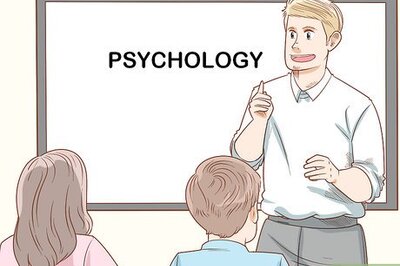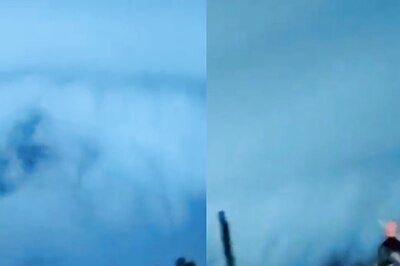
views
TOKYO: Samples of dust collected by a Japanese space probe from an asteroid some 300 million km (186 million miles) from Earth were better than hoped for, with one researcher saying he was lost for words when they opened the capsule for the first time.
The samples, the climax of a six-year space odyssey to the Ryugu asteroid by the space probe Hayabusa2, arrived in Japan last week but researchers did not know for sure until this week if they had actually gotten anything.
“We were aiming for 100 mg or more, and we definitely got that,” said Hirotaka Sawada at Japan Space Exploration Agency (JAXA), who said he was speechless when he first glimpsed the sample.
“I think that next I probably screamed, I don’t really remember,” he told a news conference. “It was really different from what I expected, there was a fair amount.”
Asteroids are believed to have formed at the dawn of the solar system, and scientists have said the sample may contain organic matter that could have contributed to life on earth.
The Hayabusa2 – named for the peregrine falcon – orbited above Ryugu for a few months before landing, then used small explosives to blast a crater and collected the resulting debris. After dropping off the capsule, it changed course and headed back into space.
That capsule plunged to earth in Australia’s outback on Dec 6 and was flown to Japan. The final stage of its journey was by truck to a JAXA research centre just outside Tokyo, where it was greeted by a crowd of excited researchers.
Next up is removing and preparing the samples, including weighing them to determine just how much has been obtained, a process that will take some time, before research can begin.
“We’re absolutely thrilled,” said Sei-ichiro Watanabe, a Nagoya University professor who heads the research team.
“There’s so many things we should be able to learn from this.”
Read all the Latest News, Breaking News and Coronavirus News here


















Comments
0 comment